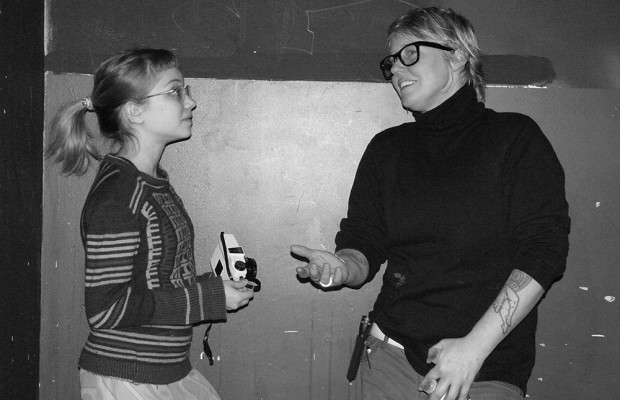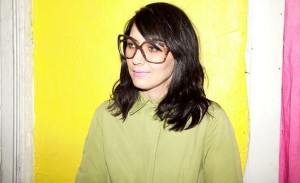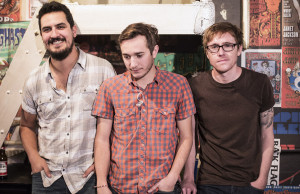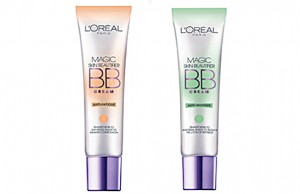Q&A: Sini Anderson On ‘The Punk Singer’ And Kathleen Hanna

With all the Miley Cyrus shenanigans we’ve been seeing in the last couple of months, it’d be easy to think that feminism is no longer a priority in our culture. We’ve been bombarded by twerking, Miley’s tongue, and naked women dancing in Robin Thicke music videos, but one woman decided to remind us just how important feminism is and the great art that has come out of it. In her first feature documentary “The Punk Singer,” Sini Anderson explores the life of punk rock feminist and musician Kathleen Hanna.
Best known for fronting the bands Bikini Kill and Le Tigre, Hanna’s story was filled with mystery and inspiration and after almost a decade of staying out of the spotlight, Hanna entrusted Anderson to tell her story. The documentary features clips of over 20 years of archival footage and revealing interviews with stars like Joan Jett, Kim Gordon, Carrie Brownstein and Hanna herself.
We had the pleasure of sitting down with Anderson to talk about her friendship with Hanna, the feminist movement and why making “The Punk Singer” was so important.
HTS: Why did you decide to tell her story now?
Anderson: She has a really important story and she means a lot to a lot of people. And I think that she can continue to mean a lot to a bunch of people and it’s a really important time to tell it because since she started making work, there’s been kind of a dip in feminist activism so I thought it was a good time.
HTS: Going off of that, where do you think the feminist movement is today?
Anderson: Well, I mean, I don’t know if we’re at a place where we’re identifying the next wave of feminism. I would love it if there were some young feminists out there that could get in touch with me and let me know. I’m waiting to hear from them you know? So I mean, where we are with actual feminism in this country, I’ll just concentrate on this country, we’re in big need for it. When we started the film I wasn’t seeing any feminist activity at all, at least it felt that way. People felt politically burnt out to me. So things started to die down a little bit. And during the filming of “The Punk Singer” a few things happened to activate feminist activism again. The Pussy Riot and what was going on in Toronto [etc.] … I feel that people, both young women and men started paying attention a little bit more to feminist issues. So it seems like we’re in a really good place with awareness about it. I’d love to see a lot more action.
HTS: Tell me about your background with feminism?
Anderson: I used to be a poet and I performed a lot and did a lot of slam stuff in the early 90s. I ended up moving to San Francisco and I couldn’t find other female performers there or I wasn’t seeing enough. It seemed like a really guy dominated poetry scene – because there was a poetry scene in the 90s (laughs) – You know I started performing at this bar and people were telling me “Hey you could do an all girl open mic, If you wanna do it, you can do it” So I ended up meeting Michelle Tea, I was going to ask her to read at the first Sister Spit and she ended up being my partner in that and that was the beginning of Sister Spit. And it kind of took off really quickly and we did a lot really fast because there was a big need for it. There was just such a big need so we created this scene pretty quickly. We followed all our friends that were in rock bands that were beginning to tour and we wanted to tour too and tell our story. So we did that, picking up different writers all over the country over about a two-year period.
HTS: Why didn’t you decide to make the Sister Spit documentary your first feature?
Anderson: You know that feature about Kathleen… I feel like it was really timely, it felt like it was a really important time to do it. Also I had the full cooperation of Kathleen to do it. She was like “I think I should tell my story, but you have to be the one that tells it. I’m not going to tell it to anybody else.” So as a filmmaker, it’s seldom that you have an opportunity like that. It would be ridiculous for me to say ‘ok well let me make this other one first and then come back to you.’ It’s just kind of the way that it happened. It just felt like the right time. And I do think the Sister Spit documentary will get made, so I’m not as worried about the timing of that.
HTS: The two of you seem to know each other pretty well since she asked you to tell her story. How did you and Kathleen meet and get to know each other?
Anderson: We have a lot of mutual friends and we met through a mutual friend, and feminist artist, Tammy Rae Carland.
HTS: You’ve said that there was so much about her and about her story that you couldn’t put it all in the film. What are some things you think might have been missed in the documentary?
Anderson: Well, one of the more heartbreaking things that had to be kept out was her incredible sense of humor. Like, I wanted to just be able to put in like fifteen minutes of her just being ridiculously funny in there because she’s super funny. So yeah, I would say humor. Also, there were a lot of quieter moments where Kathleen was more contemplative and we sat with her there as she came to her answers on different topics and questions. And they included really beautiful moving topics and shots and in the end they just weren’t moving quick enough. So there’s definitely something much more beautiful and hilarious in a longer format out there, but we’re really happy with the way it turned out. I feel like we hit what we needed to hit. A lot of the stuff that got left out was about friendship and I felt like that was really inspiring. It’s really necessary for female artists to have other artists to look up to and not feel like we’re judging each other or putting each other down but supporting each other. So Kathleen’s had some really strong female friendships in her life. That felt critical as well … that kind of support… but it may have been one too many topics getting introduced you know?
HTS: At the end of the film you really got into Kathleen’s health and her struggle with Lyme disease, how is she doing now?
Anderson: You know the last I heard, I haven’t really talked to her in a little while because she’s been on the road a lot and so have I, the last I heard she was doing pretty good and I just hope that continues. She’s still doing some treatments. Lyme disease is something that goes in remission, but you can potentially have for the rest of your life, it’s kind of autoimmune right, so you really just have to take care of yourself and she’s doing pretty good. After we finished filming the documentary she got much much sicker so we’re really happy that she’s doing as well as she is now, like well enough to tour and sing.
HTS: When you started working on the documentary did you already know about her health issues and how serious it was?
Anderson: We did know that she had health issues because she’d been really sick for six years but they couldn’t figure out what was wrong. It was another part of the timing of the documentary, because we really didn’t know what was wrong with her and she was getting worse and worse so that felt time sensitive as well. It was probably six months into filming the documentary that she got properly diagnosed. So that diagnosis did impact us while we were filming.
HTS: I also saw that you were working on making a narrative film. Tell me a little bit about how that’s going to work and transitioning to that type of film.
Anderson: Yeah, I’m pretty excited about it, I can’t talk that much about it right now except that I have a couple of writing partners that I’m working with and it’ll be a narrative story that’s inspired by a documentary. It’s an important documentary to me, a very important documentary and I think it’s going to be in development for the next year. I’m also involved in production on another documentary about late stage lyme disease.
HTS: Now I know you said you couldn’t really talk too much about the narrative film, but can you tell me a little bit about that documentary and how it affected you?
Anderson: Yeah I think it would be a dead giveaway. It had some life changing stuff, but I would say queer culture and class is probably the most I can say about it. It’s such a weird thing right, I’m sorry I can’t talk about it more. We’re REALLY excited about it though.
HTS: Tell me a little bit more about you, we’ve been talking a lot about feminism, but how did you become interested in filmmaking?
Anderson: You know I’m just basically interested in people’s stories and I feel like one of the things I have in common with Kathleen is, I think my work has always been about trying to express that deeper level of feeling that maybe most people aren’t comfortable expressing, in order to A. not feel alone B. hopefully other people won’t feel alone. But stories in general, and communication, have always been at the forefront of what I wanted to do. I feel like whatever the format, whether it’s a poem, a story, working on somebody else’s film helping them finish a film, is it collaborating with studio artists, like I’ve done a lot of different type of work and I think that settling into film right now – cause that’s really all I want to do right now – makes a lot of sense because I always can kind of pull these different elements together. But yeah, and it’s a big step right, to say I’m going to quit my job and do documentary filmmaking and I’m going to keep going to try to make another film.
HTS: How did you go about getting the funding for the film and having the guts to just go with it and make it all happen?
Anderson: We had very little funding. We had an amazing Kickstarter campaign that happened after we finished the first production, but before the production itself, I knew that if I waited around to try to raise the money to make the film that the film wouldn’t get made or it wouldn’t get made for a couple of years and I wanted to make it right then. So I’m really lucky that I had directors of photography that were willing to work completely for free and an associate producer and people that were helping us make things happen. It was totally pop up style, you know, really pulling your resources together and there were just a lot of people helping us along the way. We didn’t raise capitol to make the movie. And it’s important to say that the first production was another thing. Once we finished making the film, we got to take a deep breath and say okay well now how are we going to edit it and that’s when Kicksarter came in and searching for other producers.




